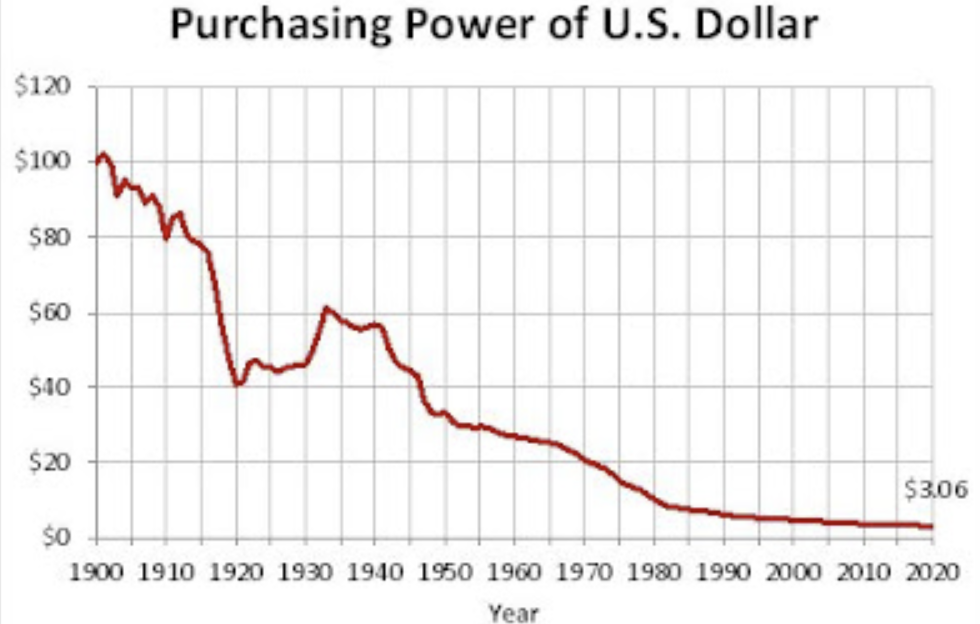Kerby Anderson
The U.S. dollar has lost half of its purchasing power in just the last 30 years. Put another way, that means that one dollar today can only buy 50 cents worth of goods and services compared to the 1990s. In less than a single generation, the dollars in your wallet or purse can only buy half as much.
Once you understand that depressing statistic, you can also begin to see why the wealth gap in this country is increasing. If you have your wealth sitting in cash (bank accounts, checking accounts, etc.), you are losing ground. However, if you have your wealth in investments (stocks, housing, land, etc.), you are doing much better.
Thirty years ago, a dollar would allow you to buy two apples. Today, a dollar will only allow you to buy one apple. By contrast, if you use that dollar (and many others with it) to buy stock, the value of the stock is worth twice as much because it takes twice as many dollars to purchase it.
This problem isn’t just affecting young Americans who would like to buy a house. It is also affecting seniors who put their savings in pensions and retirement plans. They are becoming aware that the money they set aside in their retirement plans has not kept up with inflation and there won’t be enough for them because of the dollar’s declining value.
This simple illustration helps focus on the real problem facing America in the future. The dollar is broken simply because more and more of it is being printed each year. Yes, we can lower the cost of living some by increasing energy production. Yes, protecting American markets will provide more jobs for the American people.
But we need to fix the money. Until we do so, the problem I just illustrated will be worse for the American consumer.
 Listen Online
Listen Online Watch Online
Watch Online Find a Station in Your Area
Find a Station in Your Area









 Listen Now
Listen Now Watch Online
Watch Online
